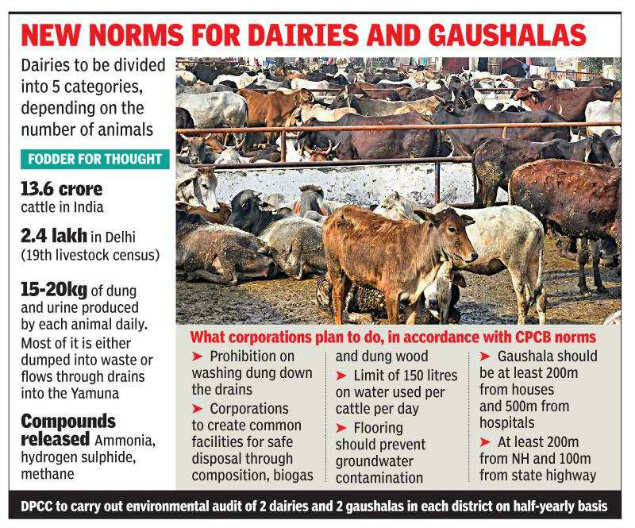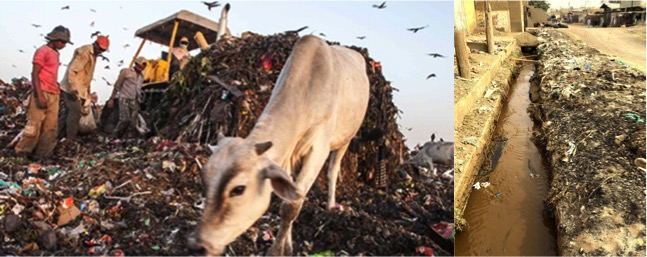Running Dairies in the capital is going to get tougher as the municipal corporations have announced that a new set of guidelines sent by Central Pollution Control Board will kick in soon.
Half-yearly environmental audits of common treatment facilities for dung and minimum mandated distances from highways, schools and residential units constitute some of the basic features of the new norms.
According to the 19th livestock census of India, Delhi had around 2.4 lakh bovines and several lakh tonnes of cow dung and excreta ended up getting washed in clogged drains and landfill sites. “Each animal produces 15-20 kg of dung and 15-20 litres of urine daily.
Improper disposal of cow dung not only damages the city’s drainage system, but it also increases emissions in the form of methane, hydrogen sulphide and ammonia. CPCB has framed the guidelines to reduce this pollution load,” said a senior municipal veterinary department official.

The new rules prescribe a minimum distance of 200 metres from residential dwellings, 500m from hospitals and schools, 200m from national highways and 100m from state highways to avoid odour nuisance as well as road accidents.
“The CPCB also try to protect the groundwater resources by mandating that such establishments should not be opened in floodplains or areas with shallow groundwater levels of 10-12 feet,” the official said.
The existing dairies would also have to take a licence under the new rules. The dairies would be divided into five categories. Smaller units of less than 25 animals would form category 1, while category 5 would comprise of dairies with more than 100 animals.
While regular inspections have been mandated for the three corporations, DPCC has been tasked to carry out environmental audit of two dairies and two gaushalas in each district every six months to ensure regular monitoring and compliance with the norms.
To check water wastage, CPCB has put a maximum limit of 150 litres for each animal daily. It has asked the civic bodies to create cow dung disposal facilities for dairy clusters. “Three methods of disposal have been prescribed in the guidelines, including composting, vermicomposting, biogas plants or dung wood,” said another official.
Source : Times of India


[…] Also read : Dairy farms and gaushalas comes under stricter vigil of pollution authorities in Delhi […]